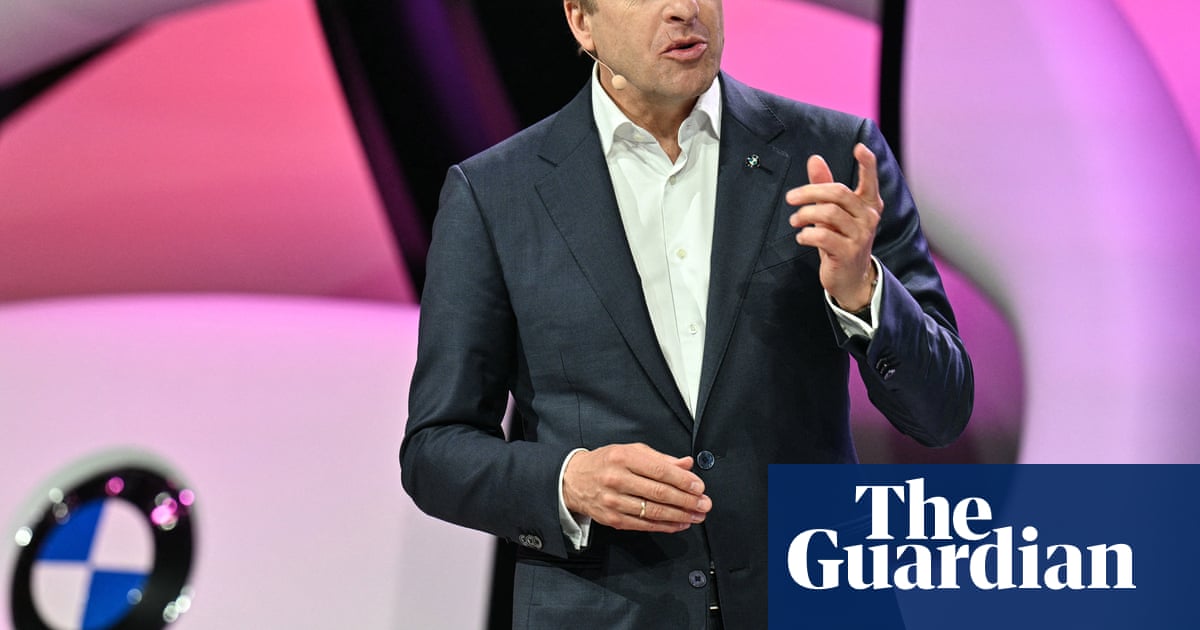The boss of BMW has predicted that Donald Trump’s import tariffs on foreign cars will be lowered this summer, as the German carmaker reportedprofits for the first quarter had tumbled by a quarter.
Oliver Zipse, BMW’s chief executive, said he expected that Trump’s 25% tariffs on the import of foreign cars would be dropped by July.
He made the prediction after the company reported a drop in profit to €3.1bn (£2.6bn) as it braced for the effects of Trump’s trade war and strong competition in China.
Zipse also said he expected a return to lower tariffs between the US, Canada and Mexico – previously afree-trade zone under a deal he signed– because the “costs are far too big for everybody”.
“In trade conflicts, nobody wins. All sides should avoid a spiral of isolation and trade barriers,” Zipse said, calling for “zero-zero” tariffs deals amid “challenging” trading conditions for car manufacturers.
In March, the carmaker said tariffs imposed by the US, EU and China could cost it €1bn this year. EU tariffs on Chinese electric car imports in response to alleged state aid from Beijing cost BMW more than €100m in the first quarter of 2025, it said on Wednesday.
Trump’s90-day “pause” on tariffsabove a flat rate of 10% on most countries is due to end in early July, with thethreat of a return to much higher levies, alongside the 145% duties still in force on China. However, the US is rushing through a series of what it describes as trade deals with major trading partners that could lower tariffs.
BMW insisted it was nevertheless well-placed to endure extra tariff costs, with separate factories in the US and China. Zipse said BMW has experienced “hardly any effect” from the steep US tariffs on China and China’s retaliation.
Zipse said its factory in Spartanburg, South Carolina, made BMW the largest automotive exporter from the US by value. He added that the company’s arguments against tariffs were being listened to.
BMW also owns the Mini factory in Oxford, England, where the company last monthcut 180 contract workersin response to lower demand for vehicles.
Despite the first-quarter earnings slump, BMW stuck with its guidance for profits for the year in line with 2024. It expects the global tariff situation to improve as countriesscramble to secure trade deals with the US, and insisted BMW was experiencing continued strong demand for its battery electric vehicles, with sales up 32% year-on-year, despite stiff competition in China.
Sign up toBusiness Today
Get set for the working day – we'll point you to all the business news and analysis you need every morning
after newsletter promotion
In the first months of the year, BMW’s sales in China, the Munich-based manufacturer’s biggest individual market, fell by 17% even as sales in Europe and the US rose by 6% and 4%, respectively.
Stiff competition in Asia’s car market is expected to intensify after the Taiwanese electronics manufacturer Foxconn announced on Wednesday it had reached a deal to build electric cars in Taiwan for Japan’s Mitsubishi Motors.
The deal will add yet another well-funded EV competitor in Asia.
